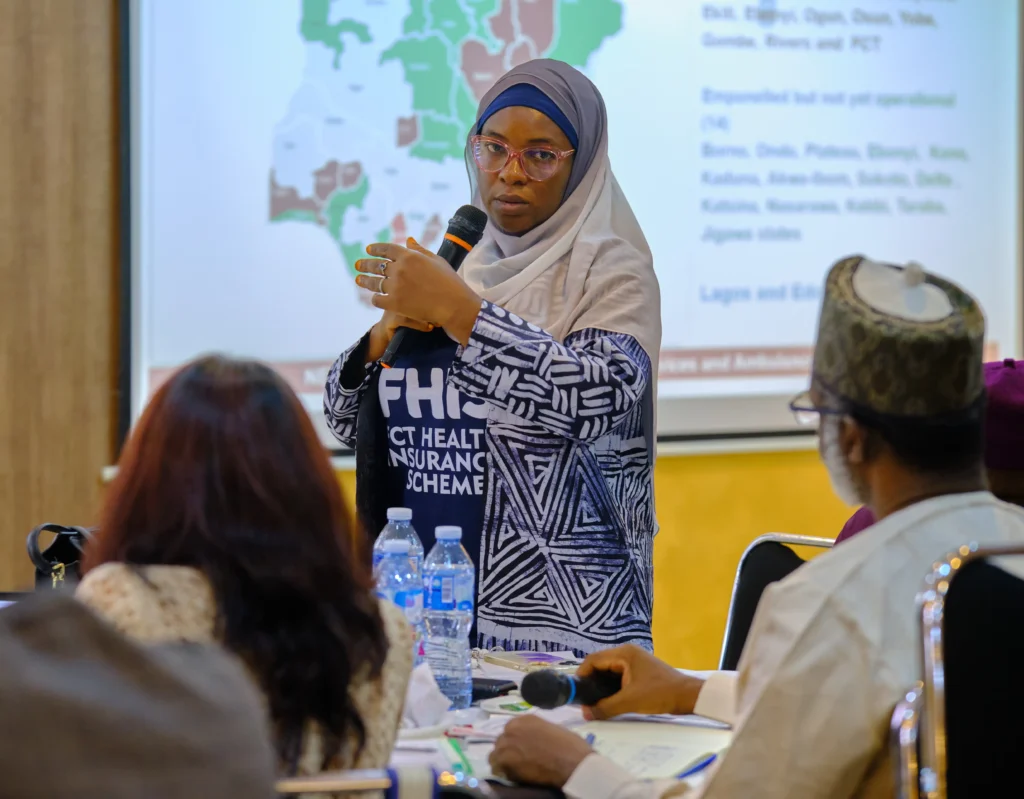
Lessons from Global Maternal Health Programs: How Can Nigeria Adapt?
Authors: Joy Aifuobhokhan, Abdullahi Adegoke
Introduction
Nigeria continues to face staggering maternal and neonatal mortality rates, where maternal mortality remains high at 576 per 100,000 live births and neonatal mortality at 34 per 1,000 live births (NDHS, 2018), contributing nearly 14% of global maternal deaths annually. As the country works to strengthen its primary healthcare system, there is much to learn from successful global maternal health interventions. Programs like MaMoni (Bangladesh), RapidSMS (Rwanda), and mMitra (India) offer valuable insights that could help Nigeria address its maternal and neonatal health challenges, especially in rural and underserved regions.
This blog explores key lessons from these initiatives and contextualizes how Nigeria, particularly under platforms like the Basic Health Care Provision Fund (BHCPF), can adapt sustainable, tech-enabled, and community-focused solutions for long-term impact.
- Bangladesh’s MaMoni Project: Integrated Service Delivery & Community Mobilization
The MaMoni Maternal and Newborn Care Strengthening Project in Bangladesh used integrated service delivery, community health volunteers, and digital tools to improve referral systems and maternal health outcomes in hard-to-reach areas.
Key Lessons for Nigeria:
- Integrated care pathways that link community health workers (CHWs) with primary health centers can reduce the delay in seeking emergency obstetric care.
- Mobilizing local women’s groups and deploying microplanning tools can improve birth preparedness and increase facility-based deliveries.
- The use of referral vouchers ensures equitable access for the poorest women.
- Rwanda’s RapidSMS: Real-Time Data Saves Lives
RapidSMS for Maternal and Child Health is a mobile-based system that connects CHWs with health facilities through SMS, enabling real-time pregnancy tracking, emergency alerts, and timely referrals.
Key Lessons for Nigeria:
- Low-cost mobile tools can bridge communication gaps between rural communities and health providers.
- Real-time alerts can trigger emergency medical transport systems, reducing the second delay in maternal care.
- Data from CHWs can inform resource allocation and improve service delivery.
- India’s mMitra: Digital Health Education for Low-Literacy Populations
mMitra is a voice call service delivering stage-based, culturally tailored maternal health messages to pregnant women and new mothers in local languages.
Key Lessons for Nigeria:
- Voice messages are inclusive for low-literacy users and rural populations.
- Culturally sensitive and localized content leads to higher engagement and behavior change.
- Mobile technology can be leveraged to scale maternal education at low cost.
Final Thoughts: Building a Nigerian Model That Works
Global success stories underscore that technology alone is not the solution, community engagement, government buy-in, and data use are equally critical. Nigeria has a unique opportunity to build its own integrated maternal health system by:
- Strengthening community-facility linkages through digital tools.
- Implementing AI-enabled messaging platforms for maternal education.
- Leveraging existing BHCPF infrastructure to scale tested innovations.
At Sydani, we believe that with data-driven insights, local adaptation, and strategic partnerships, Nigeria can significantly reduce maternal and neonatal mortality and lead the way in sustainable maternal health solutions in Sub-Saharan Africa.

